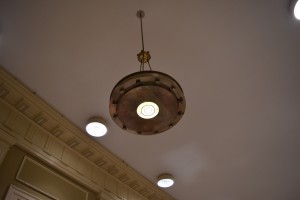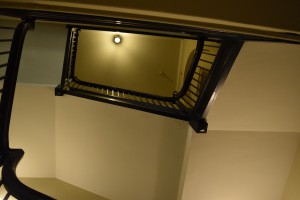When using a space for the first time, I think it is extremely important to be able to analyze that space to understand it's specific intended use and purpose. For that reason, going into Baker Lobby for the first time can be a little confusing. Because students are both studying and socializing, it may lead people to treat the space differently than intended. For example, instead of quietly and respectfully socializing, some may go sit on the couches and have a loud conversation with friends next to a desk full of students studying, all going back to the concept of taking on the burden of respecting how others are using the space.

While students may benefit from being able to respect others and how they are using a space, it is also important to raise the question of why do spaces like this exist on campus. Because it is a twilight zone type space, Baker Lobby possibly helps to create a community that doesn't just socialize in one place and do academics in another completely separate place, but melds them together. Right now, the Dartmouth campus is in a transition phase due to the Moving Dartmouth Forward initiative. There is a huge emphasis on campus to create spaces where students can learn 24/7, not just while in class. Spaces like Baker Lobby that are in between spaces can foster this type of thinking. Instead of just a pure social space in the library, the twilight space is able to bridge that gap, and keep students engaged both socially and academically.

On Dartmouth's campus, there seem to be many in between spaces like Baker Lobby, where students can work and socialize simultaneously. However, the idea of the third space that is purely social to get away from home and work doesn't seem exist on our campus. Because we are on such a small area of land, it seems to be difficult to truly escape work or home like Gruen was able to achieve with malls placed outside American suburbs, forcing you to escape. On Dartmouth's campus, the closest space that could be considered a third space may be a Fraternity house, however, these spaces are still homes for many people, unlike a mall where no one lives. Third spaces might not be possible on college campuses due to the versatility and multifunction of most spaces and the close proximity of everything, and to be quite frank, they also may not be needed. If students are able to socialize in environments that also include an academic atmosphere instead of escaping completely to a pure social space, third spaces are unnecessary on college campuses everywhere and are replaced instead by twilight zone spaces.